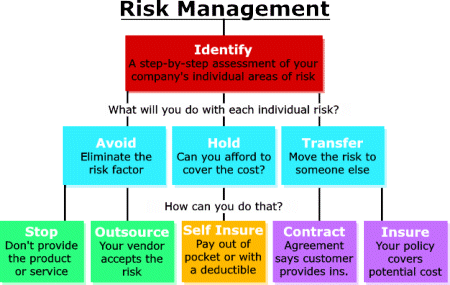
In life, we are exposed to a large number of risks that can result in financial loss. For example, there is the risk of premature death or the risk of inadequate provision for retirement needs. In addtion, there is also the risk of being disabled due to poor health or physical injury, and requiring a subsdtnatial sum for medical treatment and for replacing income loss due to the disability. Yet other risks may include the loss of or damage to our assets caused by fire, blood, theft or other perils.
Risk arises when there is uncertainty about the occurrence of a loss. Based on this concept of risk, if the probability of loss is either 0 or 1, there is no risk. For example, if a person jumps from a 30-storey skyscraper without a parachute, the outcome is certain death. Although such an act results in a loss of a human life, there is no risk associated with the act because the outcome is certain. No insurance company will provide a life cover for someone who intends to jump from a great helight. On the other hand, if a stunt man were to jump from a high position with a parachute, he may or may not survive the jump. In this case there is uncertainity about the outcome, so there is risk in the action of the stunt man.
We face risks everyday of our lives, be it illness, death, fire, etc. We can choose to transfer part of this risk to a third party such as an insurance company, through acquisition of appropriate insurance cover. This insurance cover is essential as for example, a serious illness can literally wipe out all the assets that one has worked hard to accumulate over the years. However, over-insuring or acquiring unsuitable insurance can lead to not only costly but also potentially disastrous consequences. It is therefore important to understand the various types of products on offer and to determine the level of appropriate coverage required.


